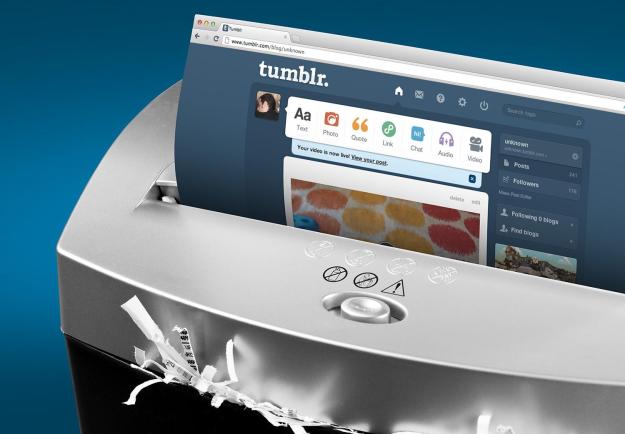
If you’re a 13-year-old girl, Yahoo’s $1.1 billion acquisition of Tumblr probably felt a bit like Dad picking you up from cheerleading practice wearing nothing but a pair of stained tighty whiteys. For the rest of us, Big Purple’s buyout of the super-simple blogging platform is one giant yawn – a relatively minor business story, and not even a scandalous one.
Beneath the surface of Yahoo’s attempt to bring in more traffic from the “cool kids” of the Internet, however, there is a lesson for anyone whose life is inexorably intertwined with the Web: It can all disappear in an instant, and there’s not much you can do about it.
All it takes is a change in business priorities for users to find out just what it means to be corporate-owned.
This expansion of our reach is clearly one of the most valuable things the Web offers. Our personal little worlds are now infinitely large thanks to the power of the Internet. And those closest to us are brought even closer with the plethora of communication tools now at our disposal, often at no monetary cost. With 105 million blogs on its network (and a billion dollars in its pockets), Tumblr has clearly become one of those valuable services – even if it is riddled with porn and sappy clichés, perhaps because of it.
And yet, we do ourselves an injustice by believing that Tumblr or any other online service on which we store our digital selves is anything but fleeting. While Yahoo CEO Marissa Mayer claims that her corporation won’t “screw it up,” Tumblr could, technically, be shut down tomorrow. Or, as many others have warned, it could simply wither away, as the Yahoo-bought Geocities did years ago. Either way, all the work Tumblr users have put into perfecting every blog post could simply go poof!
All the work Tumblr users have put into perfecting every blog post could simply go poof!
The fact that Tumblr and all of its blogs are now part of Yahoo’s fiefdom has not gone unnoticed by users. Many complained. Some 72,000 moved their entire blogs from Tumblr to WordPress, presumably under the assumption that a Yahoo acquisition would spoil the Tumblr party. But I wonder if we shouldn’t all have a similar reaction to every online service we use. As Digital Trends’ own Nick Mokey noted after the death knell of Google Reader, all of it can just “blow away” in an instant – your photos, your videos, your apps, your blog posts, your thoughts, your entire digital life. And when you think of it that way, those shoeboxes start to seem like a pretty good system.


